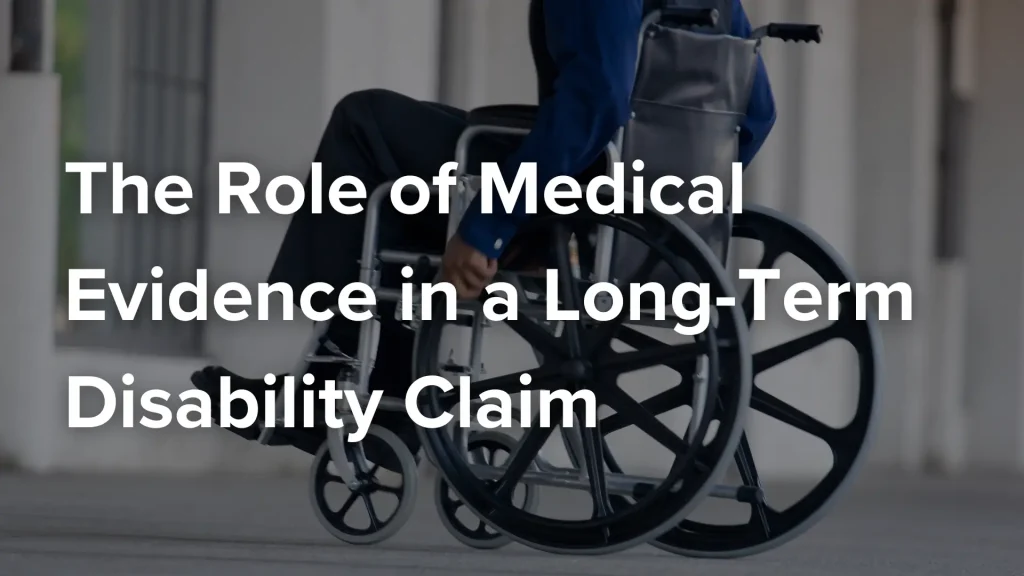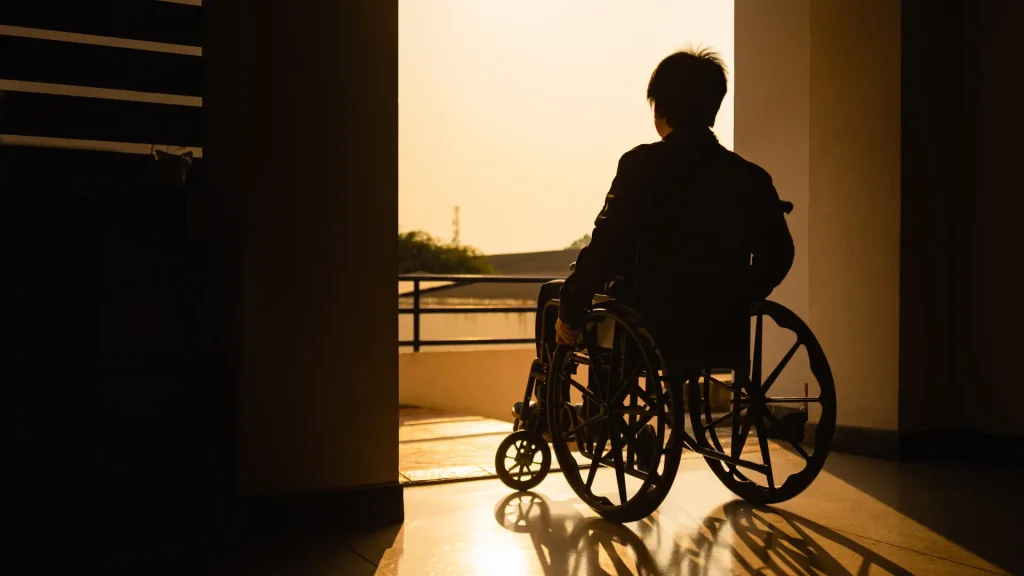Posted on Tuesday, July 1st, 2025 at 9:00 am

Medical evidence is the backbone of any long-term disability (LTD) claim. It’s not enough to say how your condition affects you—your insurer needs proof. Without strong documentation, even a valid claim can be denied.
Knowing what to include and how to present it can significantly improve your chances of approval.
Why Medical Evidence Is Critical in LTD Claims
Your insurer will not rely on your word or even just your diagnosis. They will review your medical history and supporting documentation to determine whether your condition meets the LTD policy’s definition of “disability.” That’s why proper documentation must go beyond just listing your symptoms—intense, long-term disability medical evidence is key to showing how your condition truly impacts your daily life and ability to work.
Objective medical evidence, such as MRI results, X-rays, lab tests, and clinical findings, holds more weight than self-reported symptoms. Insurers want measurable proof that your condition prevents you from working. Without it, you may face a denied disability claim due to a lack of proper documentation—strong medical evidence for a disability support pension is essential to prove the extent of your condition and its impact on your life.
Strong long-term disability documentation typically includes:
- Detailed treatment notes from your physician
- Diagnostic test results
- A consistent medical treatment history
- A completed attending physician statement
- A residual functional capacity (RFC) form
Each document helps show how your condition affects your physical or mental ability to do your job.
Common Medical Conditions That Require Strong Documentation
While every LTD claim benefits and legal options from detailed proof, some conditions are more subjective than others. Chronic pain, fatigue, and mental health disorders often do not show up clearly on medical scans or tests. Hence, the burden of proof falls harder on the claimant.
Conditions that often need strong medical backing include:
- Fibromyalgia
- Chronic Fatigue Syndrome
- Depression or anxiety disorders
- Autoimmune diseases (like lupus or rheumatoid arthritis)
- Back injuries or spinal disorders
- Neurological conditions (like multiple sclerosis or epilepsy)
In these cases, a functional capacity evaluation or an RFC form for long-term disability can help establish how these conditions limit your ability to perform daily tasks. The RFC assesses how long you can sit, stand, lift, or concentrate—often key factors in showing total or partial disability. A note from your treating physician is also vital. Your physician’s observations and professional opinion carry significant weight, especially if they have the best way of documenting a long history of consistent treatment.
How to Strengthen Your LTD Claim with Better Medical Evidence
 If you are applying for long-term disability benefits—or appealing a denial—it is not too late to improve your medical evidence. Here are some strategic steps to support your claim more effectively:
If you are applying for long-term disability benefits—or appealing a denial—it is not too late to improve your medical evidence. Here are some strategic steps to support your claim more effectively:
Follow Up Consistently
Gaps in treatment or infrequent doctor visits can hurt your case. Insurance companies may argue that your condition is not severe if you are not actively seeking care. Stick to a regular schedule with your provider and follow all treatment plans.
Request a Comprehensive Physician Statement
A generic doctor’s note is not enough. Ask your physician to complete a detailed attending physician statement and, if applicable, an RFC form that clearly outlines your limitations. These forms should directly connect your condition to your inability to work.
Document Everything
Keep copies of every medical test, lab result, and provider visit. If your doctor refers you for medical tests for disability, such as imaging or blood work, ensure those reports are included in your file. Objective results often tip the scales in your favor.
Be Honest and Specific
When describing symptoms to your doctor, be as specific as possible. Vague reports like “I’m in pain” do not carry as much weight as “I have lower back pain that prevents me from sitting for more than 15 minutes at a time.” The more accurate your reports, the better your physician can document your limitations.
Get Help from a Disability Attorney
A qualified disability lawyer can review your medical file, coordinate with your doctors, and help you gather the proper evidence before submitting or resubmitting your LTD application. Many people make the mistake of submitting a claim without a clear strategy. With legal help, your claim becomes more than paperwork—it becomes a compelling narrative supported by facts.
Strengthening your medical evidence is not just about filling out forms—it is about telling the full story of how your condition affects your ability to work. With the correct documentation and support, you can turn a weak claim into a well-supported case, which is especially important for submitting strong LTD applications that stand up to scrutiny.
Talk to a Disability Lawyer About Your Medical Evidence
Substantial medical evidence can differentiate between an approved LTD claim and a frustrating denial. If your condition prevents you from working and you are unsure whether your medical records are enough, Capitan Law, PLLC can help you build a stronger Long Term Disability claim in Pennsylvania. Our team is here to help you understand your rights and take the first step toward securing the necessary benefits. Call (267) 419-7888 today for a free consultation, complete our contact form, and get the support you need to move forward confidently.
Related Post
What is ERISA, and How Does It Affect Your Long-Term Disability Claim?
The “Any Occupation” Termination of Long-Term Disability Benefit Claims